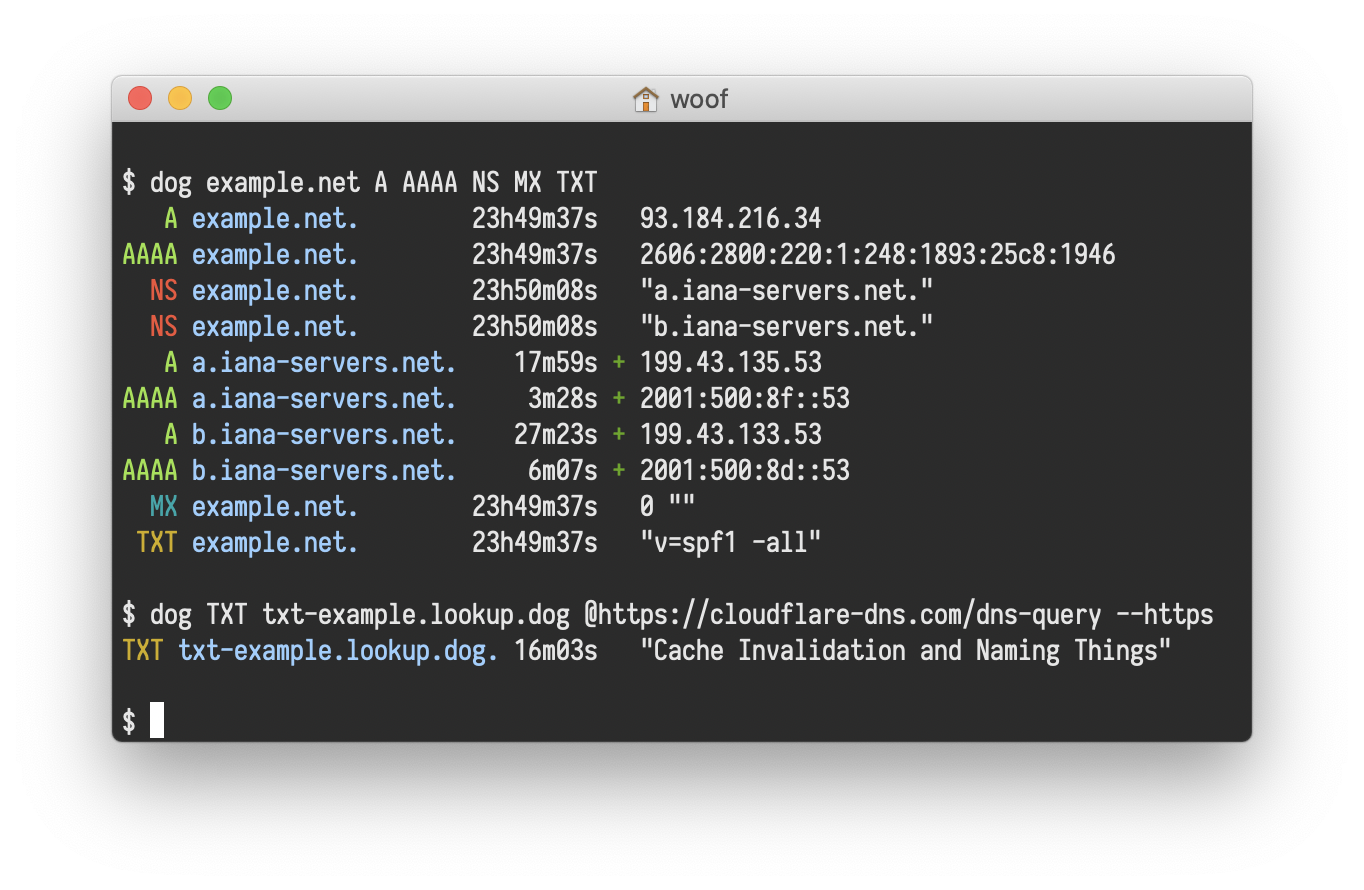# dog [](https://travis-ci.org/ogham/dog)
Dogs _can_ look up!
**dog** is a command-line DNS client.
It has colourful output, supports the DNS-over-TLS and DNS-over-HTTPS protocols, and can emit JSON.
## Screenshots

## Examples
dog example.net Query a domain using default settings
dog example.net MX ...looking up MX records instead
dog example.net MX @1.1.1.1 ...using a specific nameserver instead
dog example.net MX @1.1.1.1 -T ...using TCP rather than UDP
dog -q example.net -t MX -n 1.1.1.1 -T As above, but using explicit arguments
## Options
### Query options
<arguments> Human-readable host names, nameservers, types, or classes
-q, --query=HOST Host name or IP address to query
-t, --type=TYPE Type of the DNS record being queried (A, MX, NS...)
-n, --nameserver=ADDR Address of the nameserver to send packets to
--class=CLASS Network class of the DNS record being queried (IN, CH, HS)
### Sending options
--edns=SETTING Whether to OPT in to EDNS (disable, hide, show)
--txid=NUMBER Set the transaction ID to a specific value
-Z=TWEAKS Uncommon protocol tweaks
### Protocol options
-U, --udp Use the DNS protocol over UDP
-T, --tcp Use the DNS protocol over TCP
-S, --tls Use the DNS-over-TLS protocol
-H, --https Use the DNS-over-HTTPS protocol
### Output options
-1, --short Short mode: display nothing but the first result
-J, --json Display the output as JSON
--color, --colour=WHEN When to colourise the output (always, automatic, never)
--seconds Do not format durations, display them as seconds
--time Print how long the response took to arrive
## Installation
Installing dog requires building it from source.
### Compilation
dog is written in [Rust](https://www.rust-lang.org).
You will need a Rust toolchain installed in order to compile it.
To build, download the source code and run:
cargo build --release
And the binary will be present in `target/release/dog`.
### Minimum supported Rust version
Currently, dog is built and tested against the most recent stable Rust version, with no compatibility guarantees for any older versions.
Once dog is more mature and development has settled down, a minimum supported Rust version will be chosen.
## Documentation
For documentation on how to use dog, see the website: <https://dns.lookup.dog>
## See also
`mutt`, `tail`, `sleep`, `roff`
## Licence
dog’s source code is under the [MIT Licence](LICENCE).